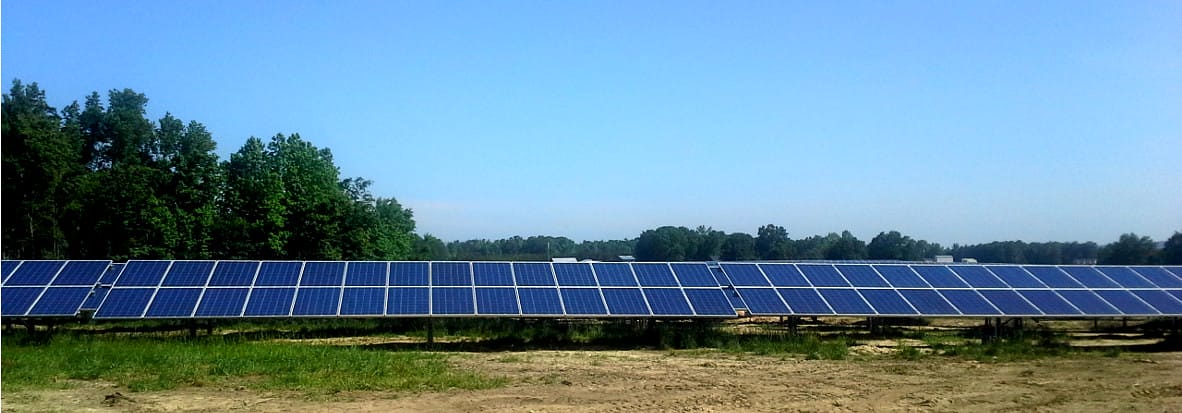Company puts last panel on Durham County solar farm
DURHAM —
A Chapel Hill-based solar development company is in the final stages of building what will be Durham County’s largest commercial solar farm to date.
Strata Solar announced Monday the last panel was installed at its solar farm on 43 acres in northern Durham County.
When it’s active, the solar farm on Bacon Road in Rougemont will be able to produce nearly five megawatts of alternating current electric power.
That would be enough energy to power about 750 homes, according to Strata.
Strata’s Chief Operating Officer John Morrison said the solar farm should be operating in about two weeks, after final inspections.
Strata will sell the electricity produced by the array to Duke Energy Progress, a subsidiary of the Charlotte-based utility Duke Energy Progress.
The company is leasing the farm’s 43 acres. Generally Morrison said, landowners lease property for solar projects because it gives them a stable income for a fixed period.
“They can get some very solid income and it’s typically more income than they would get if they were trying to farm or it leasing it to someone who’s trying to farm the land,” he said.
To build solar projects, Morrison said the company looks for sites that can meet improvement requirements, where they can connect to the electric grid and there’s a willing landowner.
“We can’t concentrate it all in one place,” Morrison said. “The grid isn’t big enough, (it doesn’t) have enough capacity to take it all in one location, (so we) end up spreading it around.”
He added that the cost of solar equipment has come down “dramatically” in the past two years, and Strata Solar has gotten more effective at constructing solar arrays. He said they can build farms more quickly, with smaller construction crews.
“We’ve gotten much more efficient,” he said.
It’s been the company’s plan all along to lower building costs enough to no longer need the state renewable energy tax credit. The state credit is set to expire at the end of 2015.
The state offers a tax credit for 35 percent of the cost of a project, up to $2.5 million per installation. That’s in addition to a federal tax credit of 30 percent of the cost available for renewable energy projects.
North Carolina also has a target requiring electric utilities in the state to use a combination of renewable resources and energy efficiency measures to meet 12.5 percent of electricity demand by 2021, according to Duke Energy.
The state incentives could be the primary driver of the solar development in the state, said Christine Beadle, an analyst with NPD Solarbuzz, but she said it could also be the stability of policy here.
She also pointed to an NPD Solarbuzz blog post on North Carolina that said they believe policy plays an important role but “strong levels of cooperation between (photovoltaic) project developers and the utilities is a large part of this success.”
via Company puts last panel on Durham County solar farm | The Herald-Sun.

